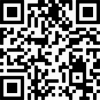
Disasters don't discriminate when or where they will strike and Community Resiliency is one of the main focus areas for our United Way.
Community Resiliency means that communities are ready for any challenge - we work with our neighbors to help all residents prosper.
There are several ways to help those affected by tragedy to start the recovery process. United Way and our partners are here to help coordinate efforts for recovery and assistance to help in any way we can.
The Lake Martin Area United Way is an active member of VOAD (Volunteer Organizations Active in Disaster), as well as the Coosa and Tallapoosa Long Term Recovery Committees (LTRCs). We also serve as the fiscal agent for these groups. Any monies donated for disaster relief will go directly toward survivor needs, recovery and/or rebuild efforts. Every disaster is unique with its own set of needs to get to recovery.
Donated funds will be used exclusively for disaster relief and recovery. Our United Way works closely with the LTRCs in both Coosa and Tallapoosa Counties, along with case managers, to determine how and where to dispense funds to best assist those in need following these disasters. Each disaster is unique and funds are carefully used according to the needs of each disaster recovery process.
All donations are tax-deductible as permitted by IRS regulations. The Lake Martin Area United Way is a 501(c)(3) non-profit (tax ID: 63-0888068).
Donations may be made via cash, check, credit card, Venmo (@LakeMartinUW - please indicate disaster recovery if sending via Venmo), or securely online at: https://givebutter.com/UWDisasterRelief (or scan the QR code below)

Helpful tips when Donating:
Cash is best. The best way to help people after a disaster is to donate cash to a recognized disaster relief organization. Monetary donations allow charitable organizations the flexibility to purchase items that are needed most, and, unlike material donations, cash donations entail no transportation or storage costs. Cash donations avoid the process of collecting, sorting, and transporting donated goods. Cash donations may be tax deductible.
Cash donations allow relief organizations to:
- fund response and recovery efforts;
- get goods and services and;
- give financial aid to survivors.
Do not send unsolicited items. It is important that prior to collecting any relief items, donors should contact the receiving local or national relief organization to verify the need and to make necessary transportation arrangements. Failure to do this will result in personnel, time, space, and money being spent to process uncoordinated items and will further detract from the resources being available to provide direct support to those affected by the disaster.
- Donate goods that are specifically requested or needed by recognized organizations. Contact your chosen organization before starting to collect or donate.
- Make a food donation to a local food bank that may distribute food to those impacted by the disaster.
Helpful tips for Volunteering:
- Get involved with a disaster relief organization before a disaster happens. They can provide the necessary training to help when a disaster occurs.
- Don't self-deploy to a disaster zone. Local officials will give specific instructions about how to volunteer. You can also check with volunteer organizations to learn about opportunities to help.
- Be patient. Sometimes the need for volunteers is greater during the recovery period.
